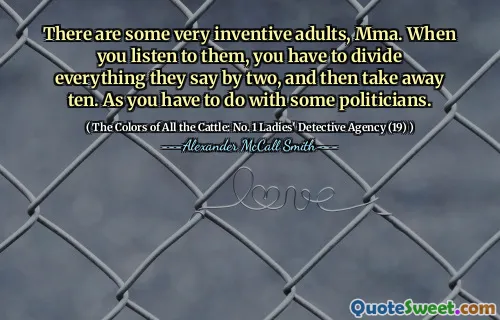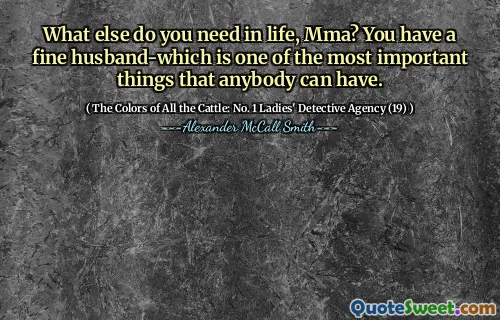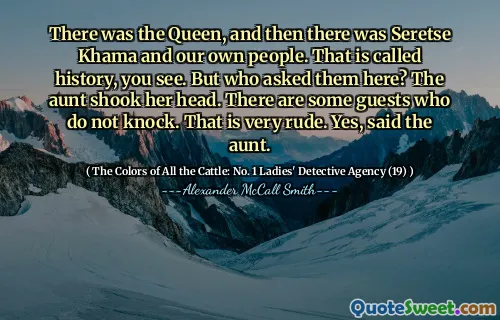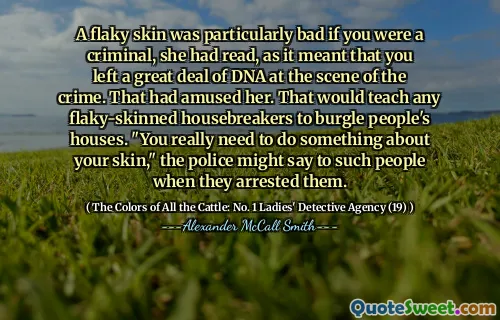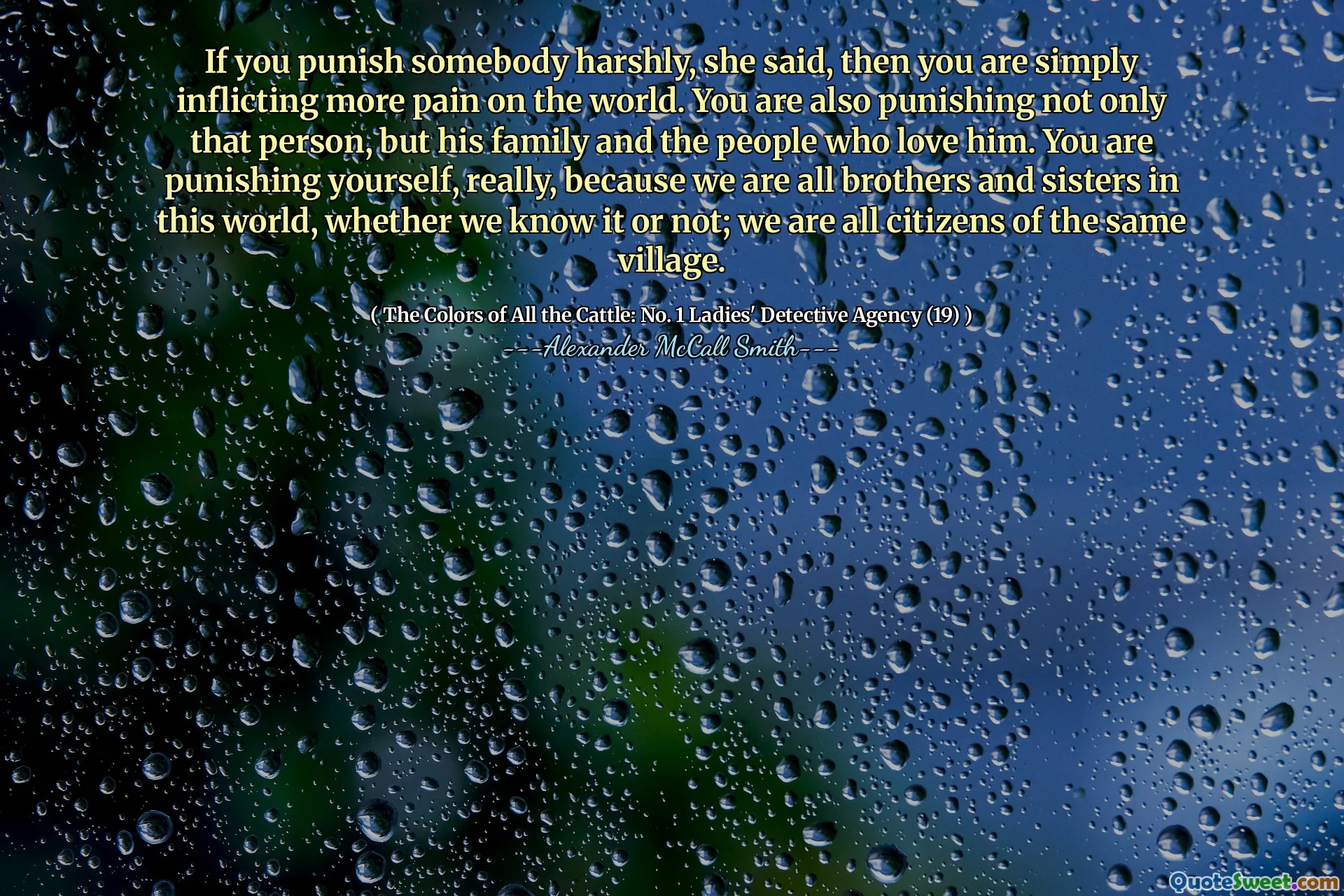
If you punish somebody harshly, she said, then you are simply inflicting more pain on the world. You are also punishing not only that person, but his family and the people who love him. You are punishing yourself, really, because we are all brothers and sisters in this world, whether we know it or not; we are all citizens of the same village.
In "The Colors of All the Cattle," Alexander McCall Smith presents a profound perspective on the consequences of harsh punishment. The author emphasizes that inflicting severe penalties does not merely affect the individual being punished; it extends to their family and loved ones, creating a ripple of suffering. This interconnectedness underscores the idea that actions reverberate through the community, ultimately affecting everyone involved.
Moreover, the sentiment expressed highlights a shared humanity among all individuals. By recognizing that we are all part of the same community, or "village," the narrative promotes compassion over retribution. Rather than contributing to a cycle of pain, an approach grounded in understanding and forgiveness can foster healing and unity, reminding us of our collective responsibility to each other.
